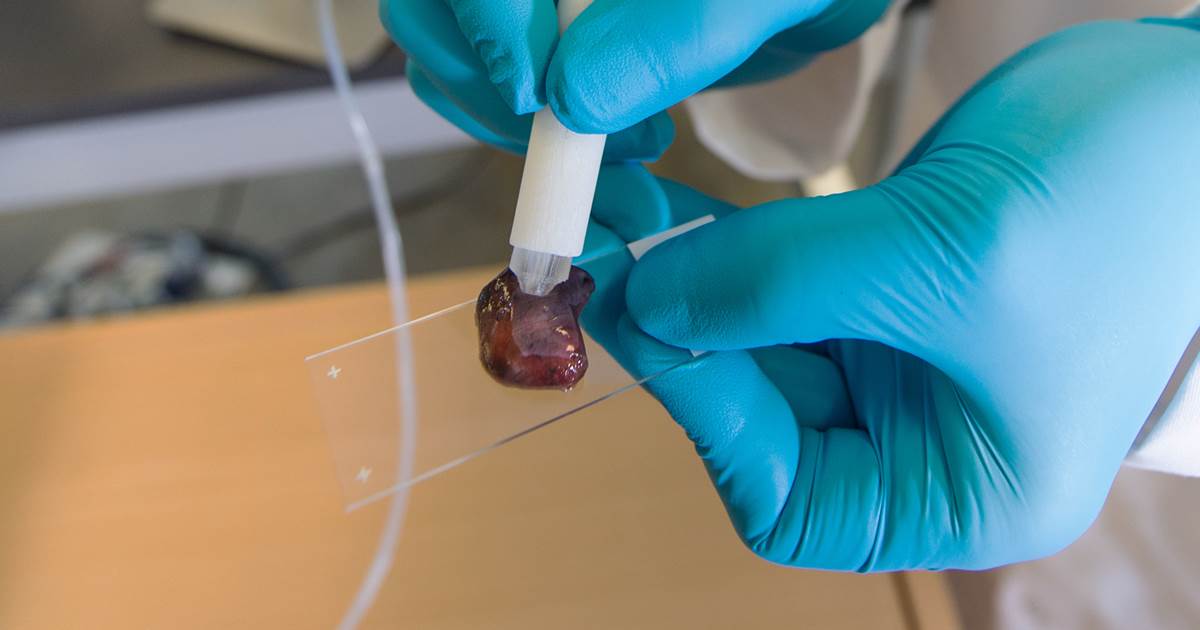MasSpec Pen, A Handheld Device for Identifying Cancer Within Minutes
The pen is mightier than a scalpel!
Yep, the researchers at the University of Texas have proven so. They have invented a gentle, handheld device that can determine within seconds whether tissue is cancerous or not. The tool could give surgeons precise information during an operation about which tissues should be removed or preserved.
This “pen” can detect cancerous cells within seconds. The MasSpec Pen can identify cancerous tissue 150 times faster than any existing technology. Use of this pen during surgery would cut out the middle work of cutting a tissue sample and sending it to a pathologist.
A cancer patient can spend hours in surgery, only to discover afterwards that a small piece of the tumour was left behind – and that means a second arduous procedure. It’s a common, distressing outcome for the patient.
There are a few ways to try and avoid this. Depending on the cancer and its location, a surgeon might opt to take additional healthy tissue in an attempt to avoid the possibility of a follow-up procedure. Or, if the hospital has the facilities, frozen section analysis can be carried out. Here, the patient
lies open on the operating table for longer, while excised tissue is sent to the lab, frozen, sectioned, stained and examined under a microscope by a pathologist. It’s time-consuming but highly accurate. Though some cancers can be altered in the freezing process, making diagnosis less cut and dry.The pen-shaped instrument, which relies on the chemical analysis technique mass spectrometry, was detailed in a study appearing in the journal Science Translational Medicine.
“My idea with the MasSpec Pen was to develop a fully automated medical device that was also completely biocompatible and non-destructive to tissue samples,” says Livia Schiavinato Eberlin, an assistant professor of chemistry at the University of Texas at Austin. “The result is a device that has a very elegant but simple design and operation, in a way that can be handled by any medical professional.”
The pen uses mass spectrometry to make diagnoses. It consists of a handheld probe with a plastic tip that is used to touch the tissue sample mid-surgery. A pump system then sends a single drop of water to the pen tip, which sits on the tissue for three seconds.
“During this time, molecules that are soluble in water like small metabolites including sugars, lipids, amino acids, and even some proteins are extracted from the tissue,” Eberlin says. “This is a very gentle chemical process, and what is incredible and exciting is that it causes no obvious harm to the tissue. You can think about it in the same way that water extracts caffeine from coffee powder, we use water to extract molecules from tissue.”
The droplet passes from the pen down a 1.5 metre tube attached to a mass spectrometer that analyses the molecules on the spot to get what Eberlin refers to as a “fingerprint” of the tissue.
A wash cycle occurs after each analysis, to get rid of 97 per cent of any potential contamination ahead of a repeat analysis – or the tip of the pen can be replaced. When the MasSpec Pen completes the analysis, the words “Normal” or “Cancer” automatically appear on a computer screen. For certain cancers, such as lung cancer, the name of a subtype might also appear.
When tested on 253 cancer patients, it was found to be 96% accurate. It even detected cancer in tissue with mixed cellular composition, meaning much less invasive surgeries and leaving as much healthy tissue behind as possible.
“Any time we can offer the patient a more precise surgery, a quicker surgery or a safer surgery, that’s something we want to do,” said James Suliburk, head of endocrine surgery at Baylor College of Medicine and a collaborator on the project. This technology does all three. It allows us to be much more precise in what tissue we remove and what we leave behind.”
Before the pen is adopted, it needs to be tested on more tissue samples, as well as during actual surgeries in clinical trials. It also needs to be approved by the US Food and Drug Administration. The instrument that actually analyzes the tissue takes up a lot of space for now, but the team is already testing a smaller one. Eberlin plans to initiate next year a pilot study in which surgeons will test her pen’s diagnostic capabilities during actual surgeries. She’ll compare the results with the current clinical approaches to cancer patient care, she says.































wooow disha u r just amazing….i read all your articles it is usefull